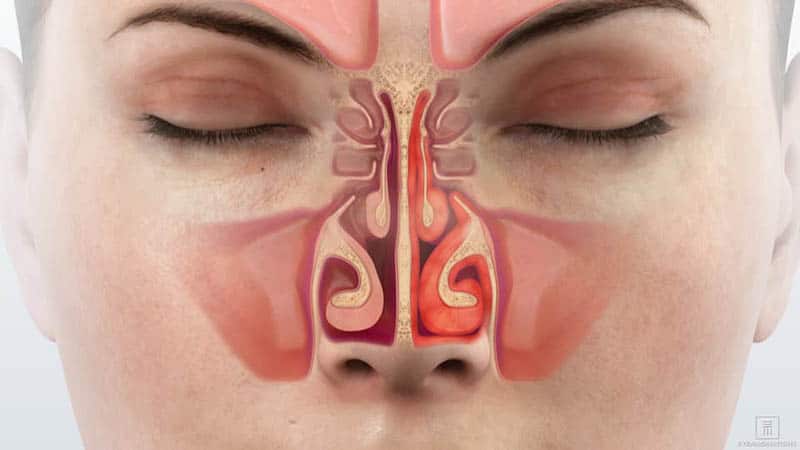The experience of pregnancy is ripe with all sorts of sensations and events that we haven’t previously experienced.
If this is a first pregnancy for you, you might have several questions about the changes that your body, mind, and even emotions are going to go through as you travel the exciting journey toward motherhood – full speed ahead.
In the days and weeks to come, you are going to take a wild ride – one where your body morphs, your mind wanders, you’re constantly hungry and your emotions peak and intensify like they haven’t done since you were a teenager.
Your partner might wonder what on earth he has done to you, and he may even cower in fear after witnessing some of your pending meltdowns.
Your feet will swell, you’ll learn the true meaning of the word “cankles” (compression socks are a lifesaver!) and you will finally understand what all of those women mean when they say “no other food will do” when experiencing cravings.
On the upside, you have a lot to look forward to in the midst of these uncontrollable physical changes.
You’ll have the privilege of knowing a little life is growing inside of you.
You’ll hear first heartbeats, feel those first kicks, and experience the strength of a most unique bond that cannot be replicated.
Now buckle up, get ready for these changes, and prepare for some of these symptoms you will inevitably experience:
Common pregnancy symptoms

Expecting women everywhere tend to report some common symptoms with pregnancy.
These include, but are definitely not limited to the following:
-
Missed periods
If you are within child-rearing years and you find yourself missing a period or two, perhaps it’s time to visit the nearest pharmacy for a pregnancy test.
As this symptom is a bit misleading for those of us with irregular periods, you might consider making an appointment to see your doctor to confirm test results.

-
Tender, swollen breasts
Early hormonal changes can cause your breast tissue to swell and become unusually tender and sore.
Rest assured, this discomfort will subside as your body quickly adapts to all of the changes that are taking place.

-
Nausea with the possibility of vomiting
Sounds like the world’s worst forecast, doesn’t it?
Many women report morning sickness, nausea, and bouts of vomiting brought on by tastes and smells that were once near and dear to them.
RELATED: Pregnancy Nausea Explained: When Does Morning Sickness Go Away?
While it isn’t clear what brings on this lovely symptom of pregnancy, we do know that peppermint oil and ginger are soothing substances to the senses and even stomach.

-
Increased urination
You WILL find yourself needing to pee more than you’d like to – it can come on suddenly, causing you to waddle as fast you can to the nearest restroom.
Or you may take frequent pre-emptive trips to the loo, as baby is quickly taking up some prime real estate and putting pressure on your bladder and bowels.
Your blood supply is nearly doubling at this time, forcing your kidneys to filter more liquid from your system. The result? More intimate time with your bathroom. This too shall “pass.”

-
Fatigue
Oh, it’s hard work to allow baby to grow and develop, isn’t it?
Soaring levels of progesterone make you feel sleepier than usual. Take your naps now, Mama, for when baby is born, you may not get to fit them in!

-
Moodiness
Tell all dads-to-be… beware! (No worries, you can make it up to them later with an awesome new dad gift!)
Flooding hormones that are inundating your body at this time make you overly weepy, emotionally, and reactive.
Do what you can to step back from strong emotional responses and learn to breathe.
Keeping a level head and regulated blood pressure at this time is instrumental in setting up good health for your baby.

-
Bloating
The belly is bloating, and so are our fingers, toes, cheeks, neck… in short, we are blowing up before our very eyes.
Staying properly hydrated, avoiding processed and overly salty foods, and getting regular exercise are key to preventing excess bloating and water retention.

-
Light spotting
Uterine implantation usually occurs 10-14 days after conception, and this is one of the first indicators of pregnancy.
Anything more than periodic light spotting should be checked out by your doctor to rule out more severe complications for you and for your little one.

-
Cramping
Uterine cramping is common in the formative stages of pregnancy.
This occurs as your body prepares to expand and move beyond the boundaries of what was formerly possible.
As you settle into second and third trimesters, you’ll see the severity of these cramps lessen, and you’ll feel the joy of baby moving around more!

-
Constipation
As hormone levels fluctuate, your digestive system will slow down, and it will be harder to eliminate than pre-pregnancy.
Keep up your activity levels and increase your fiber intake to ease what could be an uncomfortable side effect of pregnancy.

-
Aversions to food and drink
Many a pregnant woman has had intense, driving cravings for a bizarre food combination at least once during pregnancy.
It is not uncommon for these cravings and aversions to change constantly either.
Strawberry ice cream with pickles and whipped cream might be on point one day, and it may cause intense nausea and possible vomiting the next.
You never know where this wild roller coaster ride is going to take you.
Our advice? Roll with those cravings, and don’t be afraid to indulge once in a while. You’ll have to get back on the straight and narrow soon enough!

Nasal congestion
Increasing hormone levels and blood production can cause mucous membranes in your nose to swell, dry out, and bleed more easily.
Your nose may be stuffier or runnier than usual, so have a pack of tissues with you when traveling between appointments, and stay well hydrated to keep tissues from drying out.
Another common symptom that many moms-to-be report in their first trimester is a metallic taste in the mouth that persists.
This metallic taste, otherwise known as dysgeusia, is the result of your body increasing additional pregnancy hormones – usually in the initial stages of pregnancy – to prepare your body for a growing child.
Given the fact that a pregnant woman’s sense of taste and smell are already heightened, it seems that Mother Nature’s cruel little twist would be better suited elsewhere.

What is dysgeusia?
Dysgeusia is a condition affecting a person’s ability to taste and smell certain foods.
More commonly referred to as metal mouth, it is quite common in pregnant women and those with underlying health conditions.
Being pregnant and experiencing this symptom is not cause for concern.
Most women find ways to manage the unpleasantness and move through the journey with minimal issues.

Reasons for dysgeusia during pregnancy
-
Hormones
The main reason that this metallic taste persists in the mouth is due to fluctuating hormones in the body.
Estrogen is a key player in this condition.
The ebb and flow of this hormone causes pregnancy cravings, changes in taste and flavor of foods, and even the occurrence of nausea.

-
Smell and taste
Due to these changes in smell and taste, dysgeusia develops as a side effect of your body’s changing chemical composition.
If you begin developing an aversion to certain tastes and smells, it is theorized that you develop the metallic taste in your mouth because of the intimate connection between these two senses.

-
Increased water retention
Changes in your level of hydration can cause this signature metallic taste as well.
Water retention in other areas of the body can cause other areas to become dehydrated, and your taste buds are no exception to this phenomenon.
When your mouth is dry, you may find an undesirable taste that isn’t present when all systems are properly hydrated.

How do I get rid of dysgeusia?
It might not be possible to avoid an unpleasant metallic taste throughout your pregnancy, there are some things you can do to reduce its severity and duration.
Talk to your healthcare professional about your symptoms, and follow some of these simple steps to reduce them:
Combat that metallic taste with acid
Focusing on sour flavors like lemon, lime, orange, and vinegar will help cut through any unpleasantness that may be going on.
Lemonade garnished with pickle slices, salads liberally doused in a vinaigrette dressing, and orange juice are all foods that will help to stimulate saliva production as well, which in turn helps to alleviate symptoms.
Also, try to make your own delicious pregnancy smoothies!

Change that prenatal vitamin
It may be possible that the mineral content of your prenatal vitamin is contributing to dysgeusia – talking to your doctor about switching out brands might be helpful in reducing the incidents of metal mouth that you experience.

Brush your tongue regularly, and rinse with salt solution
A teaspoon of salt or baking soda in 8 ounces of water is the perfect rinse to help eliminate metal taste in the mouth.
Repeat two to three times daily for best results.
As an added bonus, it will help to neutralize pH levels in your mouth, which will also help to alleviate flinty flavors.

Never underestimate the power of good oral hygiene
Practicing good oral hygiene is now more important than ever.
Studies have shown that pregnant women are more prone to the development of gum disease and tooth decay due to increases in estrogen and other hormones that create imbalances in your mouth.
Brushing, flossing, and seeing your dental care professional on a regular basis are all essential parts of safeguarding your overall health and wellness.
Your oral health is a window to your total health and wellness, and often issues that are found in the mouth are indicators that trouble is brewing elsewhere in the body.

Other quick fixes
Keep some of the following quick fixes on hand to reduce steely saliva and keep your metal mouth at bay. Fortunately, they can be found at most grocery stores in your area:
- Citrus fruits, beverages and smoothies
- Food and drink flavored with ginger
- Salt water
- Green apples
- Sour candies or chewing gum
- Spicy foods
- Salty or vinegar-marinated foods
- Vinegar based salad dressings
If you are not accustomed to eating and drinking these items, get acquainted with them, for they will dramatically reduce your metallic taste and help to keep you feeling fresh and clean.

Can I prevent it?
While dysgeusia cannot be prevented, it can be reduced and managed to a point where it doesn’t interfere with your taste and enjoyment of most foods.
Symptoms should get markedly better at the beginning of your second trimester, and you can expect symptoms to fade completely after birth.
Talk to your health care team if you are experiencing symptoms that seem excessive, or if you are having difficulty controlling and minimizing any unpleasant taste.
You deserve all of the benefits of pregnancy with minimal discomfort.
Let your care team guide you through the healthiest and most enjoyable pregnancy yet!
Like this article? Please share or pin it for later. You can also stay in the loop and follow us on Facebook, Instagram or Pinterest.

This post contains affiliate links. Please see our full disclosure for more info.

